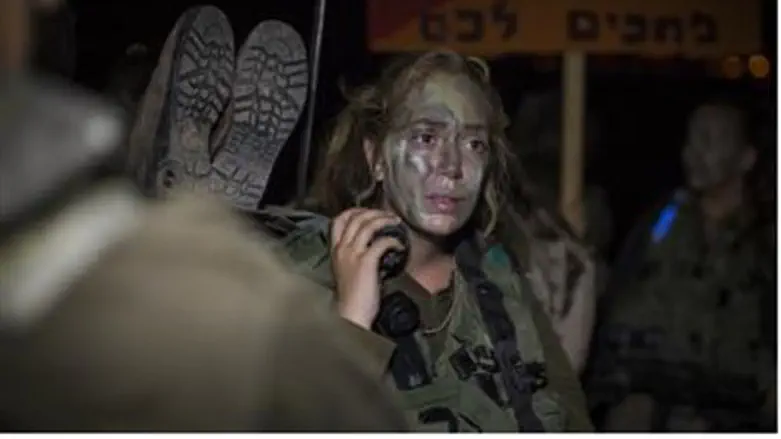
The IDF is faced with a manpower problem in its combat forces, after partially adopting PC gender equality norms. Seeking to replace male fighters with women, it has now found that at least as far as tanks are concerned, this is not possible.
Following a period of experimentation in which women who were placed in tanks under the supervision of the Medical Corps, the IDF has concluded that “placing female warriors in tanks causes damage,” a senior Ground Forces officer told Ynet.
The problem is an acute one because starting on July, the period of mandatory service for men will be cut down by four months, from 36 months to 32. This is the result of the deliberations of the Shaked Committee, which was appointed after the 2013 elections, supposedly to create equality in the share of the military burden shouldered by different populations – haredi, religious and secular on the one hand, men and women on the other.
The committee – which was headed by current Justice Minister, Jewish Home's Ayelet Shaked – deliberated a plan to shorten men's service by four months and lengthen women's by four months, from 24 to 28 months. However, it wound up shortening men's service without lengthening women's, for obscure reasons.
The IDF soon discovered that it would face a shortage of about 10,000 soldiers, and began looking for ways to fill the gap with existing female soldiers. Physiological experiments included monitoring how an average young woman functioned inside a Merkava tank, primarily in the two roles that require great physical exertion – the loader, who loads shells into the gun; and the driver, who uses a lot of strength to press down on the tank's pedals.
Another element that was examined was the fact that serving inside a tank involves great intimacy among crew members, in that during operational activity, the crew can spend 24 hours or more inside a tank without being able to go out.
As an alternative, the IDF is looking into placing women as operators of heavy engineering equipment, like D9 bulldozers, which often lead a military convoy's path and clear the road of mines and obstacles. There, too, however, a commander and operator often spend a long time inside the cabin without being able to leave. In addition, the senior officer noted that the cable used for towing heavy engineering vehicles weighs 60 kilos (over 130 lb.). He said, however, that a similar problem existed in field intelligence units, which began using an electrical device for erecting observation masts, so that women could cope with the assignment.
The integration of women into combat roles is carried out under intense pressure from the Israel Women's Network, a flagship New Israel Fund (NIF) organization with much clout in the Knesset and media. The NIF's critics see it as a subversive fund posing as a mainstream Zionist one.